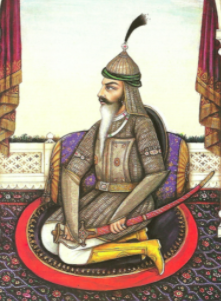Hari Singh Nalwa: The Sikh Warrior | 28 Aug 2021
Why in News
Afghanistan, which has earned the name of graveyard of the empires, could not be controlled by anyone completely.
- But, Hari Singh Nalwa, a legendary Sikh commander, tamed the turbulent forces at play in Afghanistan and earned the reputation of the most feared Sikh warrior there.
Key Points
- About:

- He was a commander in Maharaja Ranjit Singh’s force.
- Ranjit Singh was founder and maharaja (1801–39) of the Sikh kingdom of the Punjab.
- He remained Governor of Kashmir, Hazara and Peshawar.
- He defeated various Afghans and established control over various regions along the boundary of Afghanistan.
- Afghanistan was called the unconquered region and it was Hari Singh Nalwa who prevented Afghans from ravaging the North-West Frontier for the first time by taking control over several regions along the Afghanistan border and Khyber pass.
- He, thus, prevented Afghans from entering Punjab through Khyber Pass, which was the main route to enter India by the foreign invaders from 1000 AD till early 19th century.
- He had defeated thousands of Hazars, a tribe of Afghanistan, with less than three times their strength.
- For his bravery and ferocity, the government of India released a stamp on the name of Nalwa in 2013.
- He was a commander in Maharaja Ranjit Singh’s force.
- Battles in which he participated:
- 1807 Battle of Kasur (now in Pakistan): He defeated Afghani ruler Kutab-ud-din Khan.
- Battle of Attock (in 1813): Nalwa along with other commanders won against Azim Khan and his brother Dost Mohammad Khan, who fought on behalf of Shah Mahmud of Kabul and this was the first major victory of the Sikhs over the Durrani Pathans.
- 1818 Battle of Peshawar: Nalwa took control over Jamrud in 1837, a fort at the entryway to Afghanistan through Khyber Pass.
- Historians maintain that if Maharaja Ranjit Singh and his commander Hari Singh Nalwa would have not won Peshawar and the North West Frontier, which is part of Pakistan now, then this area could have been part of Afghanistan and the invasions of Afghans into Punjab and Delhi would have never stopped.
